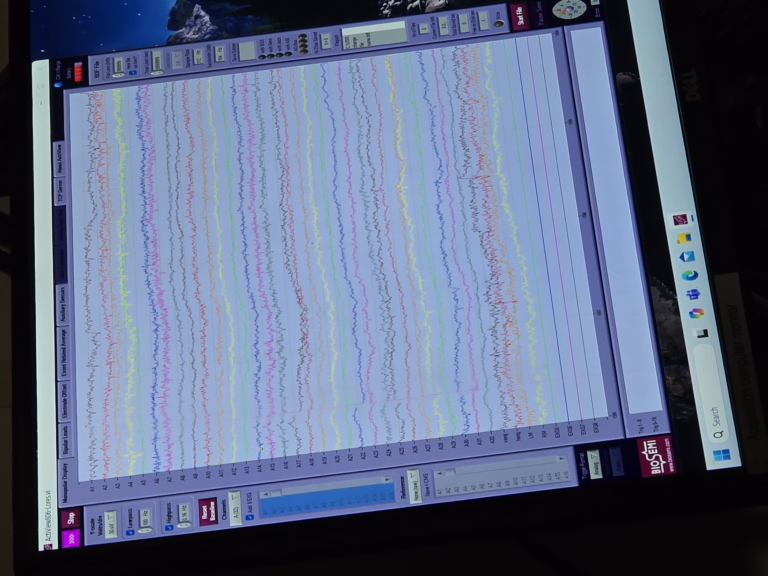Vitamin D May Help Slow Cellular Aging by Protecting Telomeres

A new large-scale study has added fresh weight to the idea that vitamin D could play a role in slowing down the biological clock that ticks inside our cells. The research, based on a subset of participants from the VITamin D and OmegA-3 TriaL (VITAL), found that daily supplementation with 2,000 IU of vitamin D3 preserved the length of telomeres—the tiny protective caps at the ends of our chromosomes—over four years.
This is significant because telomeres naturally shorten every time a cell divides, and once they become too short, cells lose their ability to divide properly. That process is strongly linked with aging and age-related diseases such as cancer, cardiovascular disease, and osteoarthritis.
Let’s break down what the study did, what it found, and why it matters.
The VITAL Trial and Its Telomere Sub-study
The VITAL trial is one of the largest randomized controlled studies looking at the long-term effects of vitamin D3 and omega-3 fatty acid supplementation. It enrolled tens of thousands of participants in the United States to test whether these supplements could lower the risk of cancer, cardiovascular disease, and other chronic illnesses.
For the telomere sub-study, researchers followed about 1,031 to 1,054 participants with an average age of 65 years. The participants were divided into groups that either received:
- 2,000 IU of vitamin D3 daily
- 1 g of marine omega-3 fatty acids daily
- Both vitamin D3 and omega-3 fatty acids
- Placebo
Researchers measured leukocyte telomere length (telomeres on white blood cells) at the beginning of the study, then again after two years, and finally after four years. The goal was to see whether supplementation made any measurable difference to telomere attrition—the shortening that naturally occurs over time.
What the Researchers Found
The results were intriguing. After four years:
- The group taking vitamin D3 showed significantly less telomere shortening compared to the placebo group.
- On average, participants taking vitamin D preserved about 140 base pairs of telomere length.
- In context, research has shown that telomeres shorten by around 460 base pairs over a decade, so vitamin D’s effect could translate to slowing telomere loss by a meaningful margin.
- This protective effect was consistent even after adjusting for other factors like age, sex, race, body mass index, smoking status, diabetes, and cholesterol levels.
In contrast, those taking omega-3 fatty acids did not see any significant benefit in telomere length preservation.
The researchers calculated that the observed effect of vitamin D was roughly equivalent to slowing biological aging by nearly three years compared to placebo.
Why Telomeres Matter
Telomeres function like the plastic tips on shoelaces, preventing DNA strands from fraying during cell division. When they wear down, the cell can’t divide properly, and this contributes to aging at the cellular level.
Shortened telomeres are associated with:
- Cancer
- Heart disease
- Osteoarthritis
- Immune system decline
On the flip side, lifestyle factors such as smoking, chronic stress, and depression can accelerate telomere shortening. Chronic inflammation is also a major driver of telomere loss.
This is where vitamin D comes in. It is not only crucial for bone health and calcium absorption, but also has anti-inflammatory effects. By reducing inflammation, vitamin D may indirectly help preserve telomeres.
Vitamin D and Its Role in Health
Most people know vitamin D as the “sunshine vitamin” because it is produced in the skin when exposed to sunlight. It’s best known for maintaining healthy bones, but researchers have been uncovering its wider roles, including:
- Supporting the immune system
- Reducing the risk of respiratory infections (especially in those who are deficient)
- Potentially lowering the risk of autoimmune diseases such as rheumatoid arthritis, multiple sclerosis, and lupus
- Helping regulate inflammation, which in turn influences aging and chronic disease progression
Deficiency in vitamin D is common, particularly in people with limited sun exposure, darker skin, older adults, and those living in northern latitudes.
How Much Vitamin D is Enough?
Here’s where things get tricky. The study used 2,000 IU daily, which is higher than the recommended dietary allowance (RDA). For comparison:
- 600 IU daily is recommended for adults under 70
- 800 IU daily is recommended for those over 70
Some studies suggest even lower doses (as little as 400 IU daily) may help reduce the risk of colds and respiratory infections. However, the optimal dose for slowing telomere shortening or aging remains unclear.
Experts warn against assuming “more is better.” Extremely high vitamin D intake can lead to toxicity, with risks including kidney problems and calcium imbalance.
The Limitations of the Study
While the results are promising, several caveats need to be highlighted:
- Only leukocytes were studied – Telomere dynamics may differ in other tissues, so we can’t assume the effect is identical throughout the body.
- Measurement method – The study used quantitative PCR (qPCR), which can be prone to variability. Changes in blood cell composition might also influence results.
- Magnitude of effect – Preserving 140 base pairs is meaningful but modest compared to the total telomere length of roughly 8,700 base pairs in these participants.
- Long telomeres are not always good – While short telomeres are linked to aging and disease, excessively long telomeres could allow abnormal cells to survive longer, potentially raising cancer risk.
How This Fits with Other Research
This isn’t the first time telomere protection has been linked to diet and lifestyle. Past studies have suggested that the Mediterranean diet, which is rich in anti-inflammatory nutrients, may also help preserve telomere length.
Other research has shown that exercise, stress reduction, and good sleep also play important roles in supporting healthy telomeres.
The vitamin D finding adds another layer to this picture. It suggests that a widely available, relatively inexpensive supplement may influence one of the most fundamental markers of cellular aging.
Should You Start Taking Vitamin D for Anti-Aging?
The short answer is: not just yet.
The results are encouraging, but experts caution against rushing to take high-dose supplements solely to slow aging. While 2,000 IU daily appeared safe and effective in this study, the best approach to healthy aging is still the basics:
- Eat a balanced diet rich in whole foods
- Exercise regularly
- Sleep well
- Avoid smoking
- Manage stress
That said, for people who are deficient in vitamin D or at risk of poor bone health, supplementation is already a well-supported and sensible choice. This new research simply suggests there might be an added bonus of slowing cellular aging.
A Closer Look at Omega-3s
It’s worth noting that omega-3 fatty acids did not show the same telomere-preserving effect in this trial. This is interesting because omega-3s have been linked to many health benefits, including reduced risk of heart disease and lower inflammation.
It may be that the specific effect on telomeres is unique to vitamin D, or that omega-3 benefits appear in other biological pathways not captured in this study.
Final Thoughts
This research provides one of the clearest indications yet that vitamin D supplementation can protect telomeres, slowing down one of the cellular processes linked to aging.
While we don’t yet know the full clinical impact, the study adds to the growing body of evidence that vitamin D is more than just a bone-strengthening nutrient. It may be playing a direct role in how quickly or slowly our cells age.
For now, the best advice remains simple: make sure you’re not vitamin D deficient, aim for a healthy lifestyle overall, and keep an eye on future research as scientists continue exploring the mysteries of aging.





